Water Purification Filters: Types, Lifespans, and Costs
- Water Purification Filters: What You Need to Know for Your Water Purification System
- Overview
- Common Filter Types and Their Uses in a Water Purification System
- Sediment Filters
- Activated Carbon Filters (GAC and Carbon Block)
- Reverse Osmosis (RO) Membranes
- Ultrafiltration (UF) and Microfiltration
- UV Disinfection
- Ion Exchange (Water Softeners)
- Ceramic Filters
- KDF and Mixed-Media
- Typical Lifespans and Replacement Intervals
- How Lifespan Is Determined
- Estimated Lifespans
- Costs: Initial Purchase and Ongoing Replacement
- Upfront System Costs
- Typical Replacement Costs
- How to Choose the Right Filter for Your Water Purification System
- Start with a Water Test
- Balance Performance and Cost
- Consider Flow Needs and Recovery
- Maintenance and Ease of Service
- Practical Tips to Extend Filter Life and Lower Operating Costs
- Use Multi-Stage Pretreatment
- Control Scaling and Biofouling
- Monitor and Log Performance
- Environmental and Operational Considerations
- Wastewater and Recovery Ratios
- Disposal and Recycling
- Why Choose a Trusted Supplier for Your Water Purification System?
- About Aqualitek (AQT)
- How Professional Support Helps
- Cost Comparison by Application
- Example: Residential vs Light Commercial
- Frequently Asked Questions (FAQ)
- Q: How often should I change my RO membrane?
- Q: Can I reduce maintenance costs without sacrificing water quality?
- Q: Is UV enough to make water safe?
- Q: What is the typical lifespan of a whole-house carbon filter?
- Q: How can Aqualitek help with system selection?
Water Purification Filters: What You Need to Know for Your Water Purification System
Overview
Choosing the right water purification system starts with understanding the filter types available, how long they last, and what they cost to buy and maintain. This guide explains common filter technologies—sediment, activated carbon, reverse osmosis (RO), ultrafiltration (UF), UV, ion exchange, ceramic, and mixed-media systems—so you can match a solution to your water quality needs and budget.
Common Filter Types and Their Uses in a Water Purification System
Sediment Filters
Sediment filters remove particles such as sand, rust, and silt. They are usually the first stage in a water purification system to protect downstream media and membranes from clogging. Typical materials include pleated polyester, spun polypropylene, and melt-blown cartridges.
Activated Carbon Filters (GAC and Carbon Block)
Activated carbon (granular activated carbon—GAC, and carbon block) adsorbs chlorine, some organic chemicals, taste and odor compounds, and certain pesticides. Carbon is a common pre- and post-treatment stage in residential and commercial systems.
Reverse Osmosis (RO) Membranes
RO membranes deliver high-purity water by rejecting dissolved salts, many organics, and most pathogens when combined with proper pretreatment. RO is widely used in homes, restaurants, laboratories, and many industrial processes.
Ultrafiltration (UF) and Microfiltration
UF and microfiltration remove suspended solids, bacteria, and colloids without the high-pressure requirements of RO. They are often used where dissolved solids don’t need to be reduced but pathogens and turbidity do.
UV Disinfection
UV systems inactivate bacteria, viruses, and protozoa without chemicals. UV is typically used after filtration to ensure particulate removal so UV light can contact microbes effectively.
Ion Exchange (Water Softeners)
Ion exchange resins remove hardness ions (calcium and magnesium) and can also be tailored for nitrate or uranium removal. Water softeners protect plumbing and appliances and improve soap performance.
Ceramic Filters
Ceramic filters physically block bacteria and protozoa and can be cleaned and reused multiple times. They are popular for point-of-use systems and in low-resource settings because of their longevity and maintainability.
KDF and Mixed-Media
KDF (copper-zinc alloy) media and other mixed-bed combinations target chlorine, heavy metals, and support biological control in carbon systems. These are common in whole-house and specialty cartridges.
Typical Lifespans and Replacement Intervals
How Lifespan Is Determined
Filter lifespan depends on influent water quality (turbidity, chlorine, TDS, organics), flow rate, system design, and usage patterns. The ranges below represent typical residential/commercial settings; industrial uses vary more widely based on load and pretreatment.
Estimated Lifespans
Below are commonly accepted lifespan ranges for standard installations:
| Filter Type | Typical Lifespan | Primary Replacement Driver |
|---|---|---|
| Sediment (cartridge) | 3–12 months | Pressure drop / visible fouling |
| Activated carbon (GAC/carbon block) | 6–12 months (GAC may need more frequent change in heavy chlorine/organics) | Exhaustion of adsorption capacity |
| RO membrane | 2–5 years | Scaling/fouling and reduced rejection or flow |
| RO pre/post filters | 6–12 months | Particulate loading and carbon exhaustion |
| UF membrane | 1–3 years (cleanable to extend life) | Fouling and irreversible scaling |
| UV lamp | 9–12 months (lamp energy hours) | Loss of UV output |
| Ion exchange resin (softener) | 5–15 years | Resin degradation / fouling |
| Ceramic element | 1–5+ years (cleanable) | Cracking or severe pitting |
Costs: Initial Purchase and Ongoing Replacement
Upfront System Costs
Installation and equipment costs vary by capacity and application. Typical price bands for residential and light commercial units are:
- Under-sink RO systems: $150–$800 (unit + installation)
- Whole-house filtration systems: $500–$3,000 (depending on stages and flow rating)
- UV disinfection units: $150–$1,000 (based on flow and lamp quality)
- Point-of-entry water softeners: $800–$3,000 (salt-based, resin volume, control head)
Typical Replacement Costs
Ongoing consumable costs for household systems (annualized) often determine the true cost of ownership. Typical replacement price ranges:
| Filter/Component | Typical Replacement Cost (USD) | Recommended Interval |
|---|---|---|
| Sediment cartridge | $5–$30 | 3–12 months |
| Carbon block / GAC cartridge | $10–$60 | 6–12 months |
| RO membrane | $30–$200 | 2–5 years |
| UV lamp | $30–$150 | 9–12 months |
| UF membrane element | $50–$400 | 1–3 years |
| Ion exchange resin replacement | $200–$700 | 5–15 years |
How to Choose the Right Filter for Your Water Purification System
Start with a Water Test
Identify contaminants and concentrations (TDS, hardness, iron, chlorine, microbes). A proper test helps select appropriate technologies—RO for high TDS, ion exchange for hardness, activated carbon for chlorine and organics, UV for microbial control.
Balance Performance and Cost
Select pretreatment to protect expensive components (e.g., sediment + carbon before RO). A system designed with correct staging reduces membrane fouling and extends life, lowering lifecycle cost even if upfront spend is higher.
Consider Flow Needs and Recovery
Match system flow rate to demand. For RO, look at membrane recovery rates and whether a permeate storage tank or booster pump is required for household or commercial use.
Maintenance and Ease of Service
Prefer systems with easy cartridge access and clear change intervals. Regular maintenance (filter swaps, sanitizing, rebuilt valves) preserves performance and complies with warranty conditions.
Practical Tips to Extend Filter Life and Lower Operating Costs
Use Multi-Stage Pretreatment
A sediment then carbon pre-filter ahead of RO or UF protects membranes from particulate and organic fouling. This extends membrane life and maintains efficiency.
Control Scaling and Biofouling
For RO and UF, use antiscalants or softening pretreatment when feedwater hardness, iron, or silica levels are high. Periodic chemical cleaning as recommended by manufacturers restores performance.
Monitor and Log Performance
Track pressure differentials, permeate flow, and TDS/rejection. Early signs of fouling let you clean or replace components before failures occur, saving costs in the long run.
Environmental and Operational Considerations
Wastewater and Recovery Ratios
RO systems produce a concentrate (brine) stream. Modern residential RO systems often recover 20–50%, while commercial systems with recovery optimization and staging can achieve higher recovery. Consider options for graywater reuse or drain minimization when sizing systems.
Disposal and Recycling
Some media (carbon, KDF) and spent resins should be handled per local waste rules. Ceramic elements and long-life components reduce waste. Ask suppliers about recycling programs for spent cartridges and membranes.
Why Choose a Trusted Supplier for Your Water Purification System?
About Aqualitek (AQT)
Aqualitek Water Treatment Technologies Co., Ltd. (AQT), headquartered in Guangzhou, China, is a manufacturer and supplier of advanced water treatment systems and components. AQT provides customized water purification system solutions for residential, commercial, and industrial needs with engineering expertise, manufacturing excellence, and global support.
How Professional Support Helps
Working with an experienced supplier ensures correct system sizing, proper pretreatment, and a maintenance plan. These reduce total cost of ownership and ensure compliance with local water-quality expectations and regulations.
Cost Comparison by Application
Example: Residential vs Light Commercial
The table below shows rough cost ranges and typical service intervals to help compare options when selecting a water purification system for different applications.
| Application | Common System | Upfront Cost (USD) | Annual Consumables & Service |
|---|---|---|---|
| Residential drinking water | Under-sink 3–5 stage RO | $250–$1,000 | $80–$200 |
| Whole-house filtration | Sediment + carbon + softener | $800–$3,500 | $150–$600 |
| Light commercial | High-capacity RO / UV / carbon | $2,000–$10,000 | $500–$3,000 |
Frequently Asked Questions (FAQ)
Q: How often should I change my RO membrane?
A: Typically every 2–5 years. Frequency depends on feedwater quality, pretreatment, and usage. Monitor TDS and flow; a drop in rejection or flow usually indicates it’s time to replace.
Q: Can I reduce maintenance costs without sacrificing water quality?
A: Yes. Proper pretreatment, staged filtration, and scheduled cleaning reduce fouling and extend component life. Choosing higher-quality media and working with an experienced supplier also reduces lifetime costs.
Q: Is UV enough to make water safe?
A: UV is excellent for microbial inactivation but does not remove dissolved salts, heavy metals, or turbidity. It should be used after adequate filtration and, if necessary, combined with other treatment technologies.
Q: What is the typical lifespan of a whole-house carbon filter?
A: Whole-house carbon cartridges typically last 6–12 months, though larger vessel systems using GAC bed replacements or backwashing media may have longer service cycles depending on contaminant load.
Q: How can Aqualitek help with system selection?
A: Aqualitek offers application-specific design, testing guidance, and end-to-end solutions—from pretreatment to core treatment and recycling—helping optimize performance and lifecycle costs for your water purification system.
Benefits of activated carbon filtration in industrial water treatment
Top 10 water treatment equipment Manufacturers and Supplier Brands
RO vs UV vs Carbon: Which Water Purification System Wins?
Comparing Energy-Efficient Deionized Systems for Large Factories
Water Filters
Do you provide replacement parts and consumables?
Yes. We supply cartridges, filter bags, media (sand, carbon, etc.), valve kits, and O-rings for all major systems.
Blog
How do I know when to add salt to my softener?
Check the brine tank monthly. Modern systems often alert you automatically when salt levels are low.
Membrane Water Treatment Systems
How long do membranes last?
With proper maintenance and CIP, UF and RO membranes can last 3–5 years, depending on feed water quality and system design.
FAQ-aqualitek
What is the difference between Reverse Osmosis (RO), Ultrafiltration (UF), and Nanofiltration (NF)?
1. Reverse Osmosis (RO): Removes up to 99.9% of contaminants, including salts, bacteria, viruses, and heavy metals.
2. Ultrafiltration (UF): Uses a membrane filtration process to remove bacteria and particles, while retaining essential minerals.
3. Nanofiltration (NF): Falls between RO and UF, removing some salts and organic compounds while allowing certain minerals to pass through.
Solutions
What types of water treatment systems does AQT offer?
AQT provides a wide range of water purification solutions, including reverse osmosis (RO) systems, ultrafiltration (UF) systems, nanofiltration (NF) systems, deionization (DI) systems, electro-deionization (EDI) systems, chemical dosing systems, and water softeners. We also supply spare parts and components for water treatment systems.

500 LPH Reverse Osmosis (RO) Water Purification Machine TWV - 412
Our 500 LPH Reverse Osmosis (RO) System is engineered to provide high-quality purified water for commercial applications. Designed with advanced RO technology, durable components, and a user-friendly interface, this system ensures consistent performance, low maintenance, and long-term reliability.
With its compact design and robust skid-mounted frame, it’s an excellent choice for businesses that demand efficiency and quality in water purification.

20 TPH Uninterrupted(1 Working + 1 Standby) Ultrafiltration System
AQUALITEK 20 TPH Uninterrupted (1 Working + 1 Standby) Ultrafiltration System delivers continuous, energy-efficient water purification for industry. Industrial Ultrafiltration System 20 TPH; 20 TPH Ultrafiltration Water Treatment Plant — high flux, low maintenance, reliable performance.

Brackish Water Reverse Osmosis (BWRO) Systems BWE Series
BWE series Reverse Osmosis (RO) systems are pre-engineered and pre-assembled units with 8” membrane housings for brackish water(higher TDS).The large volumes can help meet your a variety of industrial applications.T hey are designed for overall superior performance, high recovery rates and offer great savings with low maintenance and operation costs.

1000L IBC tank for water storage
-
An IBC (Intermediate Bulk Container) tank is a robust, reusable industrial-grade vessel designed for the storage and transport of liquids, powders, and granules. Its space-efficient cubic shape and integrated pallet base make it ideal for easy handling and stacking, offering a cost-effective solution for bulk quantities.
Request More Information
Contact us today for product catalogs, customization options, and a free quotation designed for your business needs.
Rest assured that your privacy is important to us, and all information provided will be handled with the utmost confidentiality.
Copyright © 2025 AQUALITEK. All rights reserved.

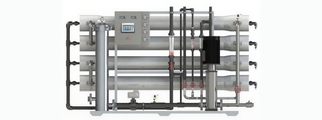
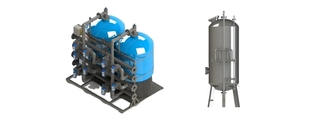
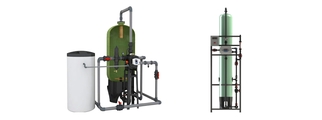
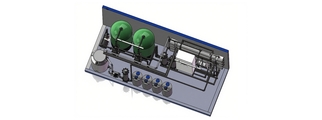
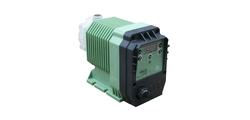
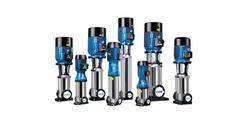
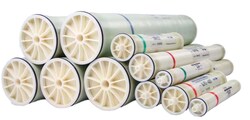
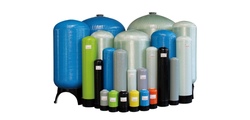
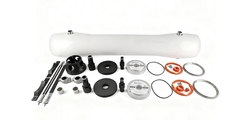
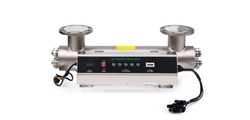
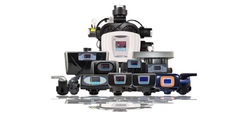
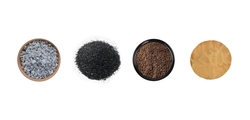
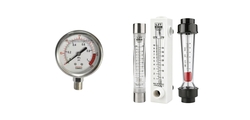
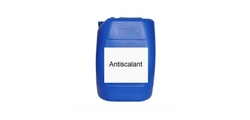
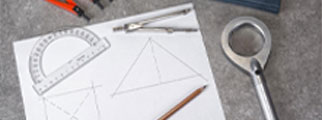



AQT
AQT